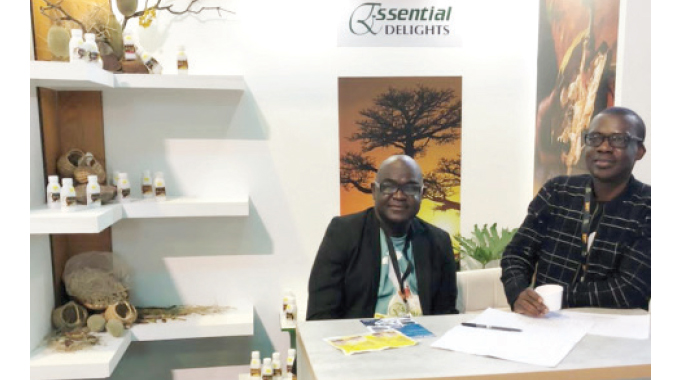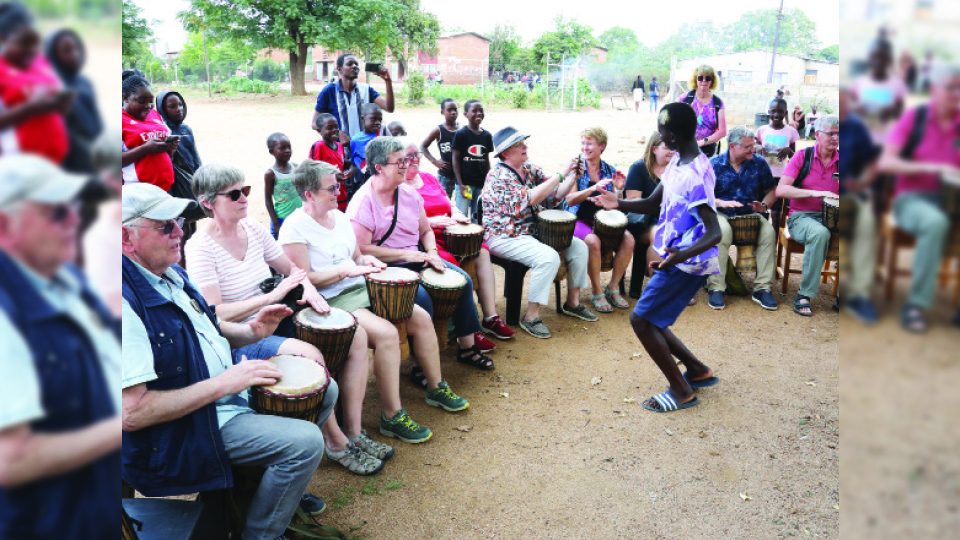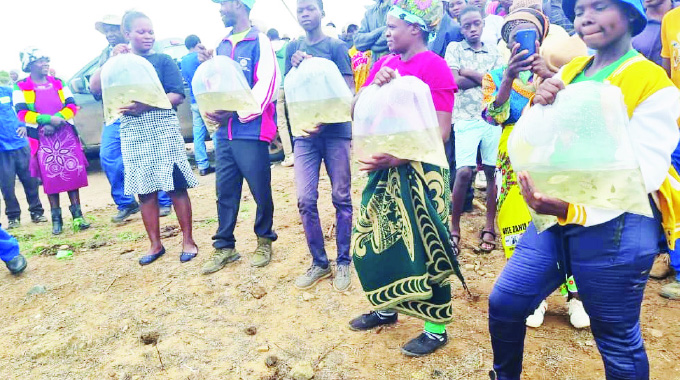Baobab fruit juice company creates employment

Canditar Chapanduka, Chronicle Reporter
WHILE the baobab tree has become an important source of enhanced livelihoods in Zimbabwe, an enterprising Beitbridge youth, Mr Kudakwashe Garaipasi (33) has unlocked a huge potential in its fruit by starting a baobab processing company and creating employment for locals.
The company, Essential Delights, which is located in Beitbridge, employs 31 people. They supply wholesalers, retailers, shops, hotels, and lodges countrywide. The company has also managed to attract clients in Mozambique, South Africa and Botswana. Scores of community members earn a living by gathering the fruit and supplying the company.
Essential Delights produces a wide range of products such as baobab juices, baobab mahewu, a traditional opaque beer called Mahafhe in Venda language, baobab creams, baobab oil, yoghurt, baobab coffee, energy drinks, purified water and instant porridge.
Mr Garaipasi established the company in 2019 with the assistance of Beitbridge-based multi-award-winning businesswoman, Dr Anna Muleya.
The young entrepreneur said on a good day they make between 1 500 and 2 000 beverage bottles per hour, which translates to more than 70 000 units per month.
“We believe our country has all the raw materials hence we need to make end products for consumption. We believe in industrialisation and the ‘Zimbabwe is open for business’ mantra hence we are making inroads into markets countrywide,” said Mr Garaipasi.
“We are supplying wholesalers, retailers, shops, hotels, and lodges and have also managed to attract clients in Mozambique, South Africa and Botswana.”
Mr Garaipasi said they source raw materials from local farmers in rural Beitbridge and Chipinge in Manicaland province.
“We buy fruits from people who gather the raw material from the bush. When we realised that we can get the ingredients locally, we started playing around with available natural resources until I came out with end products,” he said.
At Essential Delights, they open the green shell and a machine separates baobab powder from the seeds, which are also pressed to process baobab oil.
The powder makes a tangy and extremely healthy crush, which is used to produce various products. The citrus fruit is rich in vitamin, calcium and magnesium.
“We mix baobab with different flavours like strawberry, chocolate, and vanilla among others to produce juices. We now supply renowned hotels and big shops around the country with our baobab products,” said Mr Garaipasi.
The company has participated in a number of exhibitions such as the Zimbabwe International Trade Fair (ZITF), Sanganai Tourism Expo, and the Zimbabwe Agricultural Show.
“I have won a number of awards and I am always coming first for displaying the best products and business innovation. Last year, I won in the Southern region Megafest Business Awards, a diamond award for the most disruptive company of the year, and last we were the overall winners in the Beitbridge Business Expo 2022 under the SMEs category,” said Mr Garaipasi.
He said through assistance from ZimTrade, they have started exporting some of their products to neighbouring countries.
“We capitalise on trade expos where we showcase our stuff and attract the market and these expos link us with the market and clients. We are also grateful to Government for opening linkages for greater opportunities,” said Mr Garaipasi.
“We continue to appeal for more assistance to grow bigger and export to show that Zimbabwe can produce using available natural resources. My vision is to grow big to an extent of being able to export throughout the whole world.”
Also called the ‘African upside down’ tree because it looks as though the tree has been buried underground with roots in the air, the baobab grows in arid regions.
In Zimbabwe, it is common in Matabeleland North and Matabeleland South, particularly in Hwange and Beitbridge districts.
It is also common in the southern parts of the Midlands and Masvingo provinces.
In severe droughts, the baobab trunk shrinks and then enlarges again when the rains come and the water is replaced in the huge trunk. Also, as the tree gets older, the middle of the trunk naturally gets hollowed out and is sometimes used as a habitat by some animals.
Some call it the ‘tree of life’ because of its spongy fibre trunk that can store water to keep it alive in times of poor rainfall. – @NomqheleC











Comments